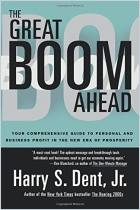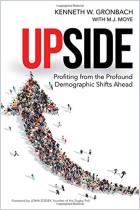Únase a getAbstract para acceder al resumen.

Únase a getAbstract para acceder al resumen.
Bob Froehlich
Investment Megatrends
Wiley, 2006
¿De qué se trata?
Demographic trends can tell you more than economic forecasts about how to invest in profitable stocks.
Recommendation
Bob Froehlich is a frequent guest on television shows and, indeed, the level of investment analysis he presents in this book is perfect for that medium. He offers basic information about demographic science; he accompanies this discussion with references to history and economics that even the most committed couch potato will find comfortably familiar and he seasons his fact salad with catchy soundbites and slogans. Then he offers specific stock-purchase recommendations. Froehlich's train of thought is not always clear, and his recommendations sometimes seem off base or even a bit risky, but getAbstract appreciates the accessibility of his analysis and his application of demographic theory. Examples and an appendix listing Web sites increase the book's usefulness. If you're new to investing, start your library with this introduction – but make sure to supplement it with other books for more advanced investors.
Summary
About the Author
Dr. Bob Froehlich is vice chairman of an investment company. He often appears on CNN, FOX, CNBC and Bloomberg TV.

















Comment on this summary